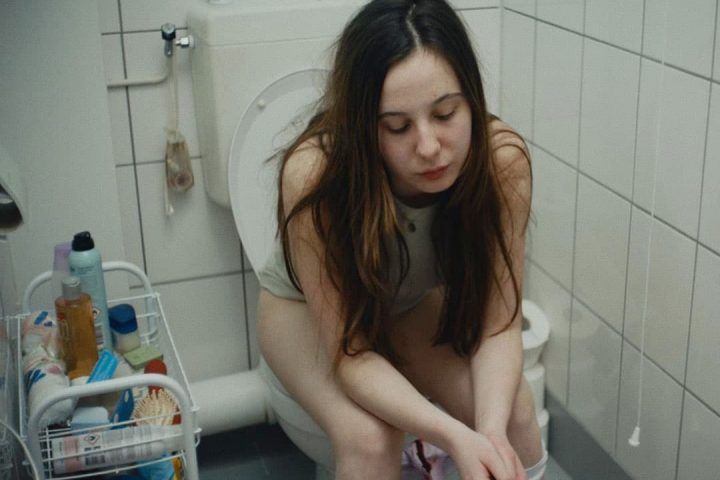By Evelyn Heis, Film & TV Editor
While menstruation is something that affects roughly 800 million people every single day, with 1.8 billion people menstruating every month, periods aren’t spoken about enough in schools, families, or everyday life. As progressive as we may think our society is nowadays, the topic of menstruation remains very much taboo all across the world. In the Global North, we may have access to educational resources, in contrast to some less developed nations, but what resources do we currently have in place to help the millions of economically disadvantaged girls, women, transgender men and non-binary persons that are unable to manage their menstrual cycles in a healthy way?
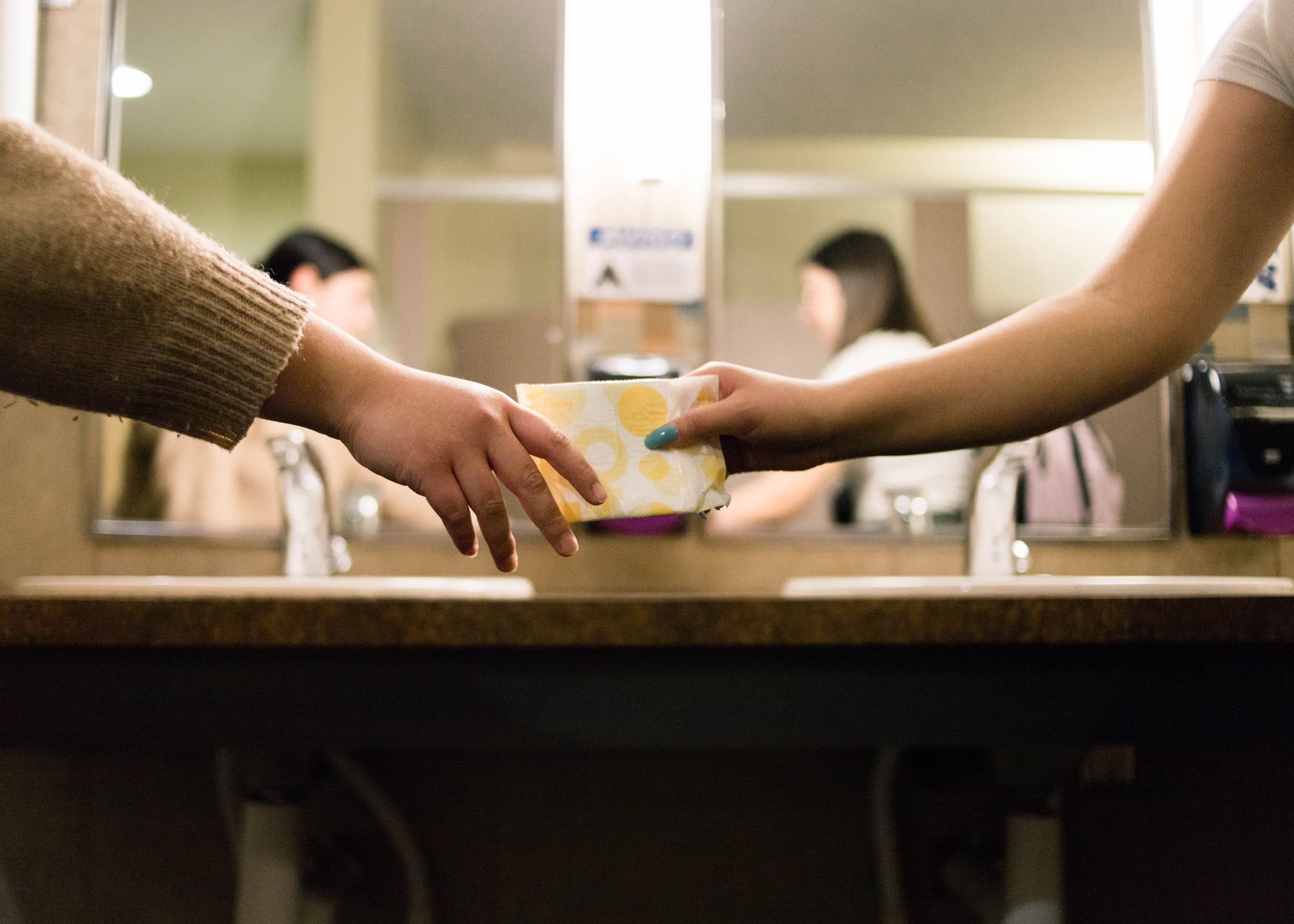
Although the lack of conversation surrounding periods is startling, particularly due to the substantial number of people who menstruate, when you consider that 1 in 10 women from the ages of 14-21 are unable to afford sanitary products, it’s even more striking to find that period poverty is an unacknowledged and often overlooked occurrence. With many unable to access sanitary products or struggling to afford them, period poverty is an issue that affects people worldwide.
Plan International UK found that 40 per cent of girls in the UK had used toilet roll at school because they couldn’t afford menstrual products and that over the course of a year, 137,700 children in the UK missed school altogether because of period poverty.
Scotland has been the first country in the entire world to acknowledge this longstanding and severe issue, having made all sanitary products free ‘for anyone who needs them’ in 2020. This was a revolutionary step in combatting period poverty, not only shedding light on the issue and setting an incredible example, but also helping to break the widespread stigma surrounding periods—an action that goes hand-in-hand with Emma Branderhorst’s film Spotless (2021), which addresses the lesser-known issue of period poverty in the Netherlands.
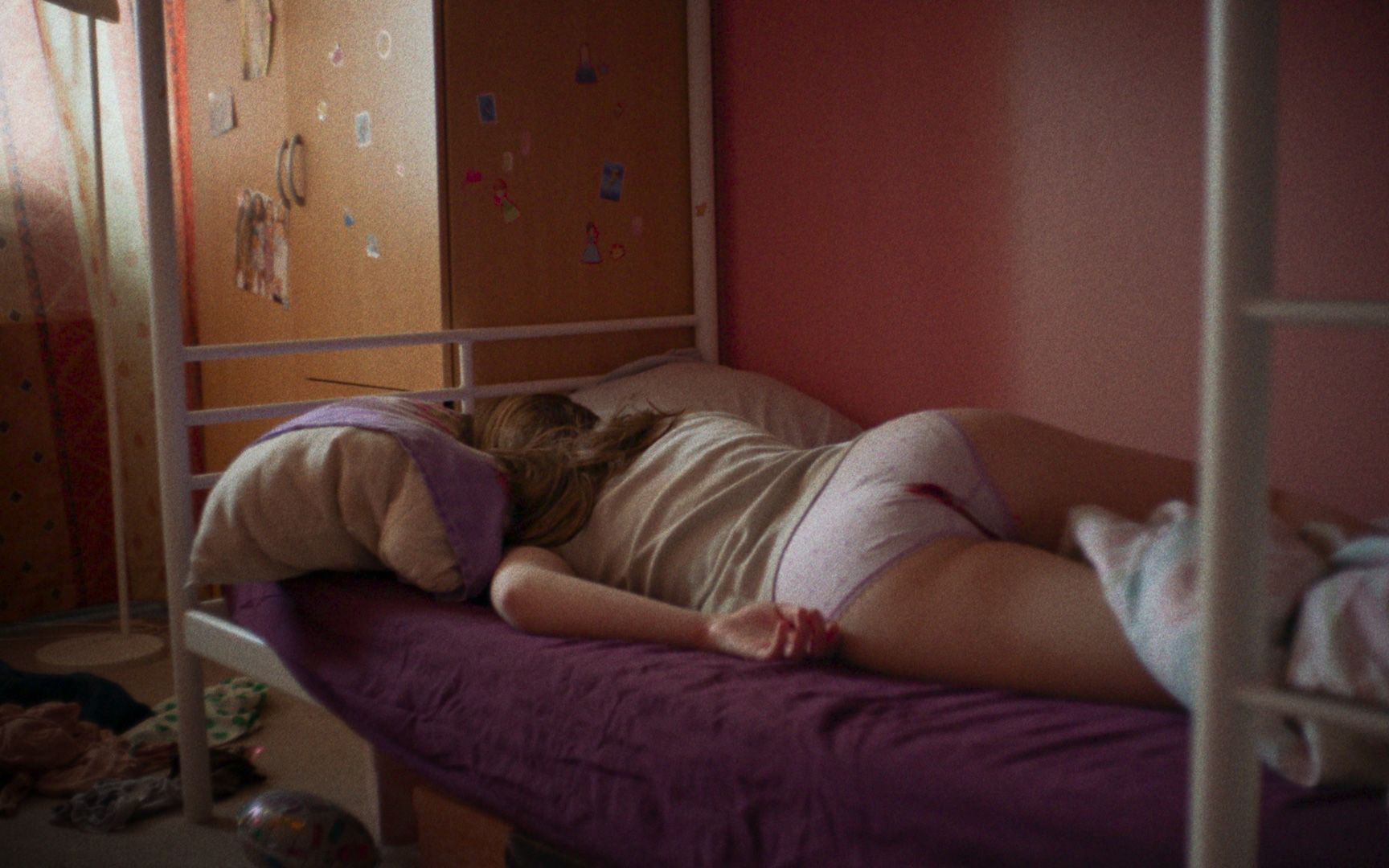
Though only a 15-minute short film, Spotless (2021) carries a compelling message that stays with you long after you finish watching it. Telling the story of a fifteen-year-old girl, Spotless provides an enlightening perspective on how period poverty affects Dutch women, outlining this predicament through the character of Ruby (Alicia Prinsen), whose family’s financial hardship directly impacts her ability to menstruate safely.
Unable to both afford sanitary products and pay for groceries, Ruby is met with an extremely difficult decision, torn between easing her single mother’s stress and accessing sanitary products, i.e. choosing to menstruate in a way that won’t jeopardise her physical health. Desperate times call for desperate measures, and there’s no one around to offer any assistance, leading Ruby to take matters into her own hands.
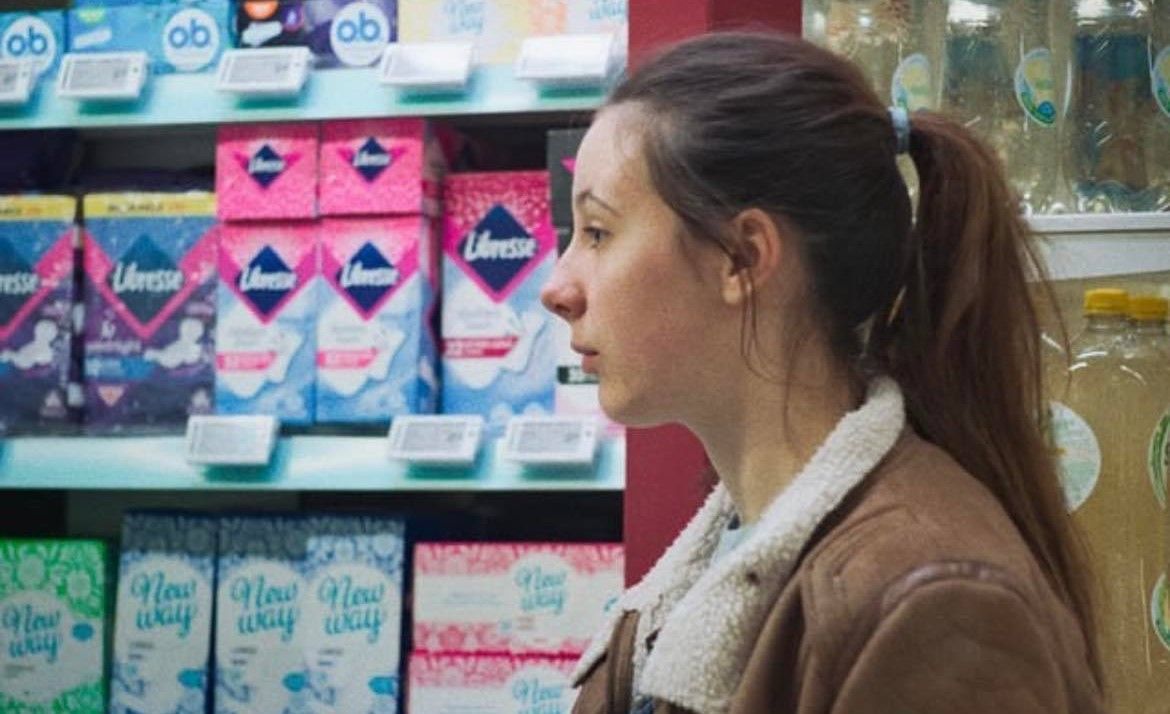
In a particularly distressing scene, Ruby rinses the tampon a friend had lent her a few days prior under the sink, wringing out the leftover water and period blood before re-inserting the used tampon. The first thought that ran through my mind while watching this scene was a worry regarding toxic shock syndrome, a life-threatening condition caused by bacteria and toxins from tampons which affects 1 in 100,000 people each year.
Ruby can’t ask her friend for another tampon, and she also can’t afford to buy any of her own, leading her to make a decision that could drastically impact her health. She also risks jeapordising her future, as she contemplates stealing from a convenience store.
Throughout the course of the week of her period, Ruby’s life is impacted in detrimental ways, from not being able to freely participate in PE to not being able to concentrate in class, highlighting that period poverty is a source of grave anxiety for her and many other women worldwide. Alicia Prinsen’s performance as Ruby is outstanding, perfectly capturing the fifteen-year-old girl's innocence amidst fiery bursts of determination to ease her family’s struggles.
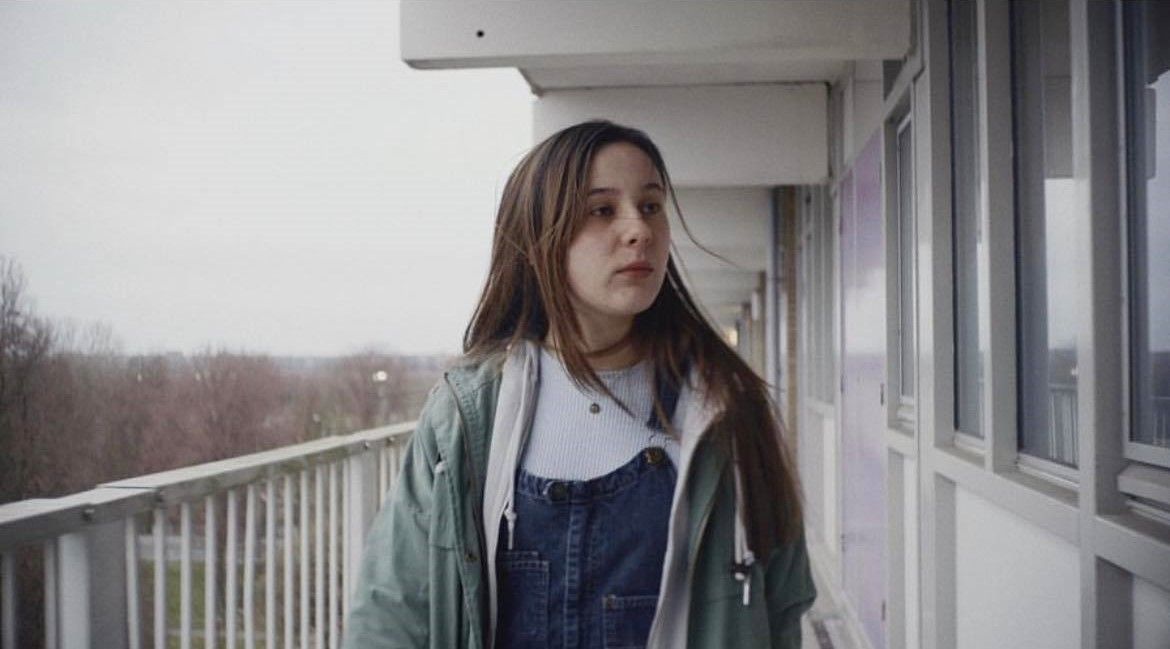
Though there hasn’t yet been a UK release for Spotless, this is a film I firmly believe everyone should watch when they get the chance. Though only fifteen minutes long, it is moving, insightful, and extremely powerful, depicting a heart-wrenching narrative enriched with real testimonies and experiences. Spotless (2021) is beautifully made, with breathtaking cinematography that compliments the severity of the storyline.
Director Emma Branderhorst, whose works shed light on societal issues that people tend to avoid discussing, wanted to illustrate the hardship that affects the 9 per cent of women who are unable to afford period products in the Netherlands. Sanitary products are commercially described as ‘luxury products’, and in the Netherlands this inadequate labelling has led government bodies to implement a 21 per cent tax on all sanitary products.
Spotless, then, acts as a voice for these unheard women, initiating conversations surrounding our healthcare and interrogating the accessibility of the systems currently in place.
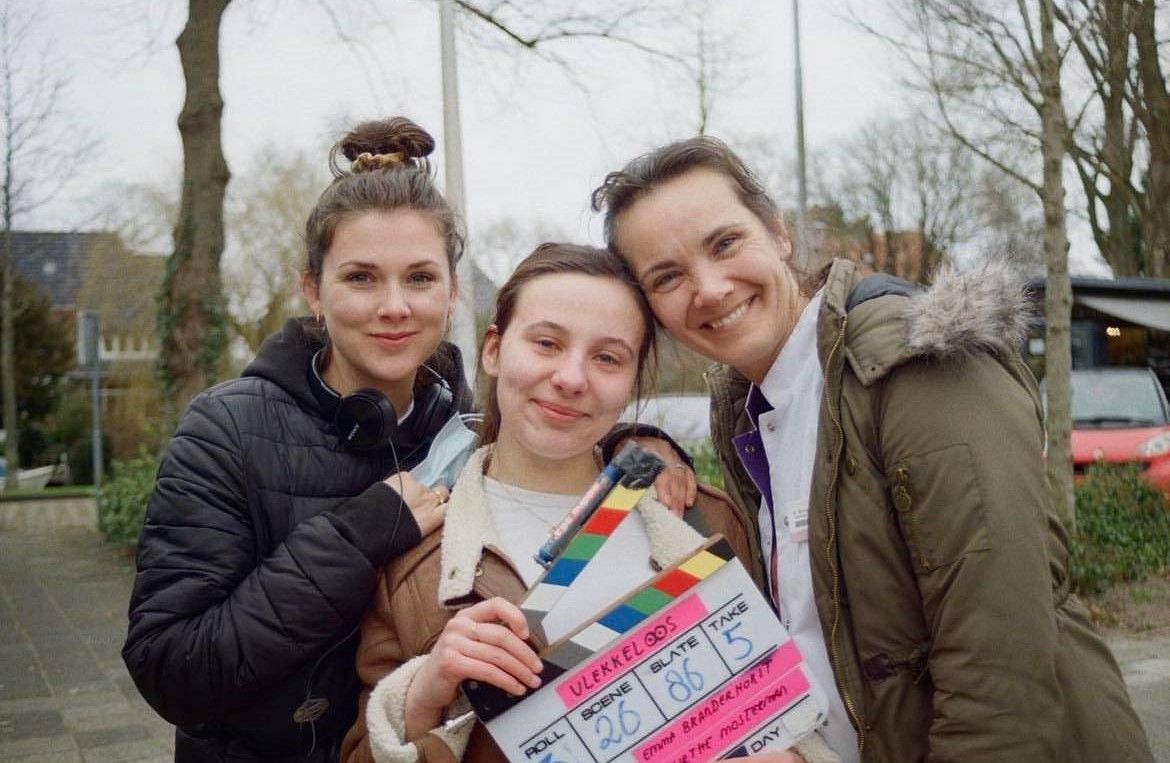
I was fortunate enough to interview Emma a few weeks ago, discussing her career as a filmmaker and recent Film graduate, whose works primarily centres the female experience and pressing societal issues. The day previous to our interview, she won three Dutch Creativity Awards lamps: one for Talent, one for Young Director, and one for Spotless.
Having won numerous awards and having been showcased at over seventy film festivals, Spotless has recently been submitted for the Oscar category of 'Live Action Short Film', with the announcement of whether or not it will be nominated for the Oscar expected at the end of this year. (I remain extremely hopeful that it will be!)
To find out more about Emma’s background as a filmmaker, her directorial process and her empowering ideas, as well as her upcoming film projects, read my interview with her below.
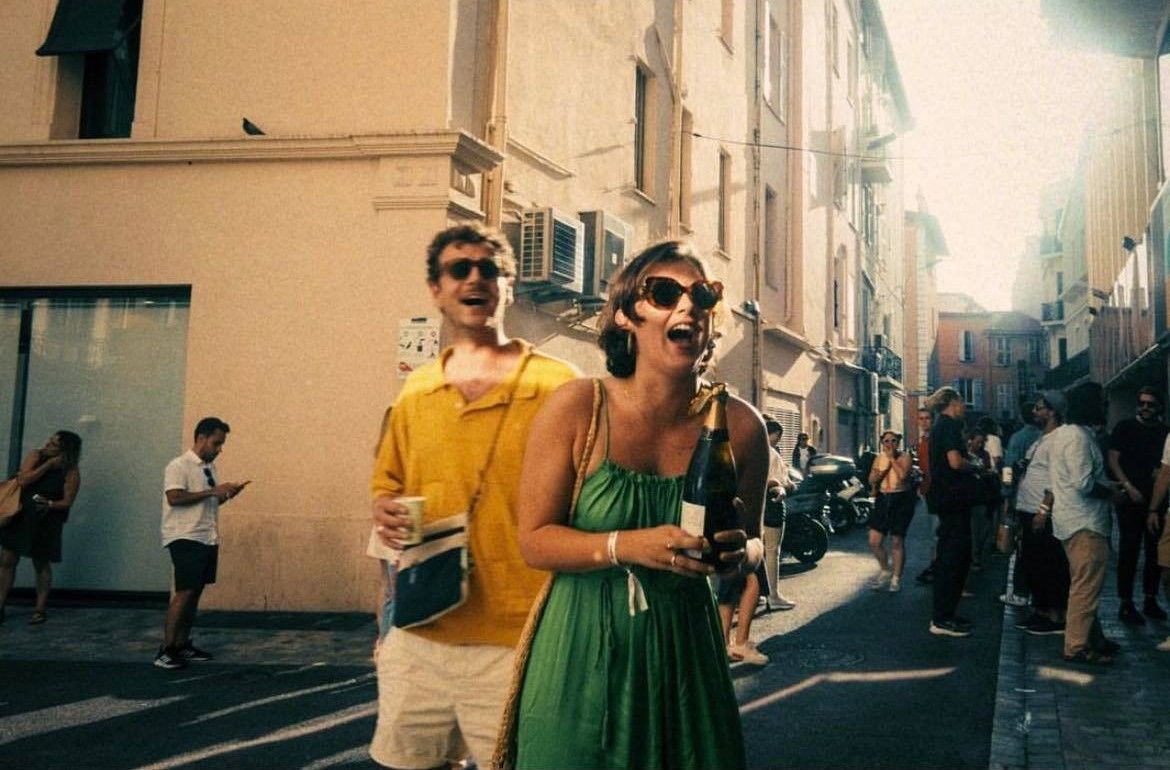
Evelyn Heis: Could you tell me a bit about your background as a filmmaker?
Emma Branderhorst: I graduated 3 years ago already now, but when I made the film [Spotless], it was one and a half years ago. What I mostly do in my work is I make films from the female perspective, and I love to create films about a subject or taboo that is not seen very often. I really like to make things visible that are not so visible in our society. And I do this mostly from a female perspective because I am a female, and I think there are many great stories that are not told from female perspectives.
When I was younger, I never had the dream to direct, I always had the dream to act, to stand in front of the camera. But they didn’t let me into Theatre school. I tried multiple times, but it didn’t work out and, by coincidence, I got into Art school after doing an audition at the Arts Film School. That’s where my love for film really came to life!
EH: Wow! That’s amazing, and purely by coincidence!
EB: Yeah, totally!
EH: With Spotless being your first project after graduating, how did you find the experience? Was Spotless your first big film project also?
EB: Spotless was my first project after I graduated. But when I was at Film School [Hogeschool Voor de Kunsten in Utrecht], I made a film in my second year and a graduation film in my third year, of course.
My graduation film was about girl venom, I don’t know if you’re familiar with that term, but it’s the tension between girls. When I was in high school, I had a lot of ‘friends’ who were not really friends because they were always gossiping behind each other’s backs. They were mean girls, like in the film Mean Girls (2004). I always saw that film, and I was like, ‘but this is not how this girl venom works, this is way too clear, this is way too out in the open’. The girls [in real life] do it much more sneakily. So, I really wanted to make a film about that, and I did it for my graduation film, which was called Onderhuids (Under the Skin).
It was selected for the Berlinale in 2020, and it won many prizes. With it, I got funding to make Spotless. And actually, now I’m working on a new film. I’m in the editing period, and I have my last week of shooting next week!
EH: When it comes to filmmaking, would you say you have a set process? Do you have a way of doing things that helps you to work creatively?
EB: That’s a good question! I think, for me, it always starts with an interest in the topic. I do a lot of research. I really see it as a documentary: I do literature research and also watch a lot of films, so I know everything that has already been made and said about the subject. I think after doing one to maybe one and a half years of research, then I can start creating the script. I’m not really a filmmaker that’s like, ‘I have an idea I’m going to write straight away’, I’m one that tries to get information from all different types of corners. After all that kind of information, then I can write because I don’t really like to make things up, I always want to have a base on a reality or something that I read. I think that’s my way of doing things!
I always work with a writer. I always have somebody who writes with me because I’m not a very good writer! I can come up with all the ideas for scenes and that kind of stuff but I’m not really good at sitting behind my laptop and creating the script. For me, working together with my team is very important to create the story.
EH: Was Spotless based on the experience of someone you know? What drove you to tell this particular story?
EB: At first, I wanted to make a film just about periods. When I was young, I always saw in films that periods were depicted as blue, or with glitter, and that kind of stuff. Also for me, in my childhood, it was very hard for me to talk about my period. It was not very open in my family or friend group, which is so weird because we all have it. No one talks about it. A lot of people think it’s like gross, and that was a thing that I was really struggling with. So I wanted to create awareness, so that people can talk about it—especially younger girls in high school. That was the beginning of the film, and when I started my research about talking about periods I read an article about period poverty. I had never heard of it (this was maybe three or two and a half years ago), and I couldn’t imagine how it would feel for those women to experience period poverty.
I dug into it more with my writer, and then I knew that this was exactly the power of film that we can have because we can give these women a face; we can really try to let the watcher of the film experience the effects of period poverty. For me, this was really important, because when you read an article it’s always so hard to feel something because it’s just letters. But within Film, you can create a whole world around a person and [through visuals] really let someone feel.
For me, this was very important to do. We also worked at the food bank for a few months because we wanted to create this real story.
So Spotless is not from my own experience, because I am very privileged and I have never had that problem; it was very important for me to do all the research because I really wanted to give this very realistic view of the subject. I wanted to be around the people who experienced it, not just as a filmmaker making this film, I wanted to be a part of it.
EH: In the making of Spotless, you already mentioned working with a writer; how much of the film was scripted, and how much was left to improvisation? Did you have any directorial decisions that you were sure you absolutely wanted to see in the final project?
EB: For me, it’s very important that on set there’s a lot of freedom, for my DOP* and for the actors. What I mostly do is I don’t give my young actors a script. I never gave them a script [for Spotless]. In preparation and in the pre-production we read the script together, so they know a little bit about how it’s going, and then on the set I don’t give them anything, because then we can improvise and then they can really be in the set and feel how a scene would go and what they would say. I give them some guidelines, like ‘this is the beginning of the scene’ and ‘this will be the end’, just like those directions, but on set, I would say it’s pretty free.
But, of course, I had some important parts of the film that I wanted to be in the film to tell the film. There’s a lot of stuff cut out of the film, like we had a whole line together with her best friend and a whole line on the school, but we threw it all out. I think it distracted us from her struggle and the problem with period poverty. We really wanted to focus on her and the problem, and the film was already way too long, and I think then we would be over-dramatising and making it much more worse than it was, so we really wanted to keep it very small.
When we wrote the script it was like 25 pages, actually. Now it’s only 15 minutes. So there’s a lot of stuff that we threw out, but what I mostly tried to do is, I really like to make long takes. I don’t like to cut, I hate cutting in scenes, I think that’s also, for me, the long takes [are what] creates a documentary effect. In a documentary, you can also not cut because you simply don’t have the shots—you just can’t re-do it. I really like to make long shots that way. In Spotless, we also tried to combine scenes, so scene 1, 2, 3, 4, we created all in one long take, and I think that’s what I really like to prepare, but then on the set, when we have those guidelines, we can go all the way. It’s nice to have some bullet points.
*DOP - Director of Photography.
EH: One of the film’s most striking aspects is the grainy iridescent aesthetic, did you film on a film camera? Or was that an added filter when you were editing?
EB: I really wanted to create this sober kind of feeling in a film, like the grey-ish kind of feeling. It was also very helpful because it was March, so it was very bad weather here, and the sky was all grey. I love to work on film, I love it. But I don’t think it really suits the way I work, because I love to improvise, I love to let a camera roll, I love to do it over and over and over again with different variations.
With my DOP Myrthe [Mosterman], we had a lot of conversations about how we can create the soberness in our image. But in Spotless, Myrthe was saying, ‘I don’t think we need to work on film because it will probably not help you’. So we had a really good Gaffer, and he was just amazing; we would show him some stills or some feelings we wanted to create, and he just made it. I think already in the production design and that kind of stuff, we had made all the choices—which were not very colourful. We already tried to do that in the pre-production and when we were shooting. We did put a grain on the film and made it a bit darker and greyish [after].
But I love when I have the time and the money to film on film! I also had this with my new film recently: it’s a film where we’re going to Marseilles in France, and you just want to shoot on film because you have the sun, and you have the beautiful views, all the golden hour stuff—it’s just amazing to shoot on film! We’re also going to add the grain and stuff here.
EH: You made this film with the hopes that it would break the taboo and ignite the conversation surrounding periods and, specifically, period poverty. You won a few awards yesterday, you won 7 awards prior to this, and your film is Oscar qualified: is this what you had hoped for? Is there anything else that you would like to see your film achieve? What change/aim would you like to see in the future?
EB: I view this in two ways: one way is for me, as a director, where I have achieved everything and even more! The reactions I got from this film, and the work I got from it are insane, and finding my own voice is just beautiful. I think for me, as a director, this is above everything, it’s just amazing. I never ever ever expected or dreamed of anything like this, so that’s really nice.
On the other side, with the film, I want to create awareness for period poverty, and I think with the film we’ve reached a lot of people, so that has really been working out. We’re also making school programmes around it, with Movies That Matter here in Amsterdam. That’s also amazing. And the film is being seen worldwide, so we’re reaching even more people. But my main focus now with the film is to make [the access of] period products free, like sanitary pads, tampons, I just want it in the health insurance. But the thing is that it’s so difficult because I am a filmmaker and not an activist, and my knowledge only reaches a certain point.
Now we are working and are in touch with the State Secretary here in Holland. We wrote a letter to her, and we need to talk with them about the further steps. What needs to change is the politics; with this film, I want to create awareness for what is a real problem, but I can’t change the laws, I am not supervised to change or create these laws. That’s also very frustrating because the film is going so well and winning prizes, but nothing else is being done. Of course, we are a small part of helping the problem because now I think everybody in Holland knows what period poverty is, and two years ago nobody knew. So I think that’s already amazing. But of course, I want to help the women that are very struggling, and I think now, with the energy crisis and inflation, it’s only going up. At the food bank, they were not having enough sanitary pads for all of the women; that’s a really big concern of mine.
EH: Spotless, being filmed and set in Amsterdam, is raising awareness for period poverty in Holland. Are you also hoping that Spotless can have a worldwide impact to tackle the issue and introduce free sanitary products?
EB: Yeah! Of course, that’s why we have the sentence at the end of the film, 'Period poverty affects girls worldwide'. I don’t know all of the numbers and statistics everywhere, and I really wanted to create a film that is Dutch-based because I’m a Dutch filmmaker, and I can’t talk for all the other countries, but I think the problem is everywhere. With this film, and that’s why it’s so amazing the way it’s going, I think we’ve played at 70 festivals already. I think that’s what’s so nice, that this film is being seen in all those different countries and a lot of countries have that same problem. The problem is everywhere, because it’s just so expensive no matter where you are [to get period products]. In the Netherlands, we have to pay a 21 per cent tax because they’re seen as a luxury product!
*We laugh*
It’s so weird because periods are not a luxury. It’s like €4 for a packet of o.b. tampons which includes 16 pieces. What I found out in my research, and I think it’s a really interesting point, is when you have a €50/week budget, and you have some mothers who have two, maybe three, daughters or parents who have more children, then it becomes more about the consideration: do I buy cleaning stuff for the washing machine? Buy my kid’s school trip? Or, do I buy myself some tampons? It’s more about the consideration of what you should take. But it’s just not that black and white. I think that’s the main problem. When I told people I was going to make this film they were like, 'yeah, but tampons are just €3!', and I was like maybe it is, and it’s not a problem for you, but it’s about the consideration for others.
EH: After watching the school scene where Ruby is in PE class and leaks onto her clothes, I was wondering if schools in Amsterdam had school nurses or staff who could provide students with sanitary products? In my University, we have free sanitary products in almost every toilet on campus, and I think it’s the same in other places across England. Is there something like that in the Netherlands?
EB: I think that’s starting to change now, actually. When we made the film, there wasn’t anything in the toilets. But now, because there’s a lot of awareness of period poverty, there is a lot of knowledge about it now, it’s almost everywhere now. That’s just amazing! But that’s a change that’s happened in the last 6-7 months.
EH: Is there anything you can tell me about your upcoming film project? Do you have any other ideas for other future projects?
EB: The film is almost done—well, it’s not almost, but as I mentioned earlier, it’s actually my last week of shooting! The film is about how important it is to break free from your mother at a certain point, not like really breaking free but just letting each other go a little bit, as it’s important for both to start a new life where you’re not with each other all the time. It’s very autobiographical from me and my own mum. It’s just about letting each other go a little bit. It’s a very small film, it’s going to be around 20 minutes. By the end of the year, it will be done! Before New Years.
I’m working on my very first feature film now—I’m super excited! That’s about how loyal kids are to their parents, and we created a situation with an alcoholic mother. There are many children growing up in families with people who have an alcohol addiction, and in the Netherlands, and I think everywhere, it’s a very big taboo because the alcoholism stays mostly inside of the house. I think there’s a wrong image of alcoholism in films because we see a lot of people going to bars and getting really drunk, but what I found out in my research is that it’s a very secret subject and that there are many alcoholics who keep it in between the walls, so they don’t share it outside. I think to create the story, we are going to experience this from a sixteen-year-old girl who is living at home with her mother and her sister. This is also based on the relationship between the parents of two of my best friends. But I’ve been doing my research now already for one year, and I think at the end of this year we’re going to start it near the end of this year.
*Emma’s upcoming film is called Ma Mere, et Moi and is set in Marseilles. Detailing the complexities of mother-daughter relationships, it is due to be released sometime this December: https://www.emmabranderhorst.com/films/ma-mere-et-moi/
Featured Image: Emma Branderhorst on IMDB
For more information on Emma’s upcoming film projects and to stay up to date with her success, especially as we approach the Oscar nominations, make sure to follow her Instagram @emmabranderhorst and check out her website https://www.emmabranderhorst.com/.

